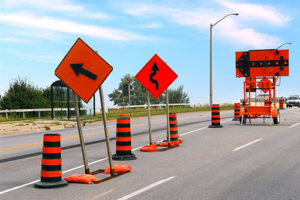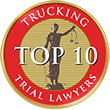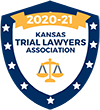
Work zones on roadways can create hazardous conditions for both construction crews and nearby motorists. The Federal Highway Administration reports that a significant contributor to these accidents is the involvement of trucks. In 2021, for example, over 33 percent of fatal crashes at work zones involved commercial motor vehicles such as large trucks.
Accidents in construction zones can also include construction vehicles such as dump trucks, loaders, cranes, and others, especially during their entry or exit from the construction area. Additionally, incidents may occur with parked construction vehicles, leading to sideswipe accidents along the roadside.
Work zone crashes frequently result in serious and life-threatening injuries, particularly when large commercial trucks, buses, or construction vehicles are involved. In states like Missouri and Kansas, these accidents often trigger chain reactions involving multiple vehicles.
Causes of Truck-Related Accidents in Work Zones
 The most common types of truck accidents in construction zones include angle collisions, rear-end collisions, and head-on collisions. The following are the top reasons why truckers contribute to these potentially fatal crashes:
The most common types of truck accidents in construction zones include angle collisions, rear-end collisions, and head-on collisions. The following are the top reasons why truckers contribute to these potentially fatal crashes:
1. Speeding
The Missouri Commercial Driver’s License Manual highlights that the top cause of accidents in roadway work zones is speeding traffic. Collisions involving speeding trucks can lead to severe injuries such as traumatic brain injury, spinal cord injuries, and internal organ damage.
2. Failure to anticipate
Construction zones have additional characteristics that drivers must anticipate such as speed limit reductions, narrowed lanes, and workers entering the roadway at any time of day or night. A distracted or fatigued trucker will have slower reaction times towards these elements, potentially causing a crash.
3. Proximity to construction workers and equipment
The presence of barrels and barriers can significantly narrow the road, demanding heightened concentration from truckers to navigate within the lane. Large trucks must steer clear of construction workers, their equipment, and fellow drivers. Failure to do so can lead to disastrous outcomes for both motorists and construction personnel.
4. Tailgating
Truck drivers must maintain a safe distance between their trucks and the vehicles ahead. Neglecting to do so increases the risk of rear-ending the vehicle in front, resulting in potentially severe injuries to its occupants.
5. Disregarding warning signs
Truckers must remain attentive to warning signs in work zones, even in the absence of workers. Unfortunately, fatigued or careless drivers fail to heed these signs in time to avoid a crash.
6. Disregarding instructions From Road Work Flaggers
Truckers who fail to adhere to the directions given by work zone flaggers run the risk of causing harm to both the flaggers and other motorists.
7. Distracted driving
Engaging in distracting activities such as eating, talking on a phone, or texting while driving can lead to accidents, and this risk is heightened in construction zones.
8. Late merging
Truckers attempting to merge at the last minute before a lane closure can create bottlenecks and contribute to accidents.
9. Neglecting a thorough pre-trip inspection and route assessment
Truckers should review their travel route in advance to plan a safe journey within the allocated time frame. Failure to do so increases the likelihood of falling behind schedule, prompting speeding and other risky behaviors in work zones.
10. Lacking patience and composure
Truckers exhibiting impatience, potentially due to schedule pressures, are prone to speeding, tailgating, and last-minute merging. This increases the likelihood of causing accidents.
Preventing Crashes in Work Zones: Safety Tips for Truck Drivers
The Federal Highway Administration and its partner organizations provide the following safety recommendations for truckers navigating through highway work zones:
- Truck drivers should consistently adhere to posted speed limits when approaching and traversing work zones. It is essential to reduce speed in adverse weather or road conditions and further slow down when workers are close to the roadway.
- Follow the flagger’s directions. Truckers must maintain alertness and be ready to comply upon encountering a “Flagger Ahead” warning sign. Within a work zone, flaggers have the same authority as a regulatory sign and a police officer directing traffic. Failure to follow their instructions can lead to citations issued by law enforcement.
- Truckers should merge at the earliest opportunity and not wait until their lane is closed to facilitate smoother traffic movement. Engaging in lane blocking is against the law, and those violating this rule will face citations.
- Truckers should maintain extra distance between their truck and the one in front of them, considering that rear-end collisions are the most common crashes in highway work zones. The required stopping space increases with the truck’s speed. (The Missouri CDL manual recommends one second per 10 feet of the vehicle’s length.)
- Truckers should maintain a safe distance from traffic barriers, construction equipment, vehicles, and workers. Vigilance is essential to identify inattentive motorists and protect highway workers from potential risks.
- Truckers are required to adhere to posted signs until they encounter the sign indicating that they have exited the work zone.
- In any work zone, whether on a major or minor road, truckers should be prepared for unexpected changes like reduced speed limits, narrower lanes, and worker-pedestrians on or near the road.
- Truckers should be ready for delays regardless of the length of their journey, as road construction is a common occurrence. Highway agencies may suggest detours to help truckers bypass the work zone altogether.
- Truckers should consistently monitor traffic conditions one mile ahead to enhance preparedness for potential slowdowns, stoppages, and approaching changes in traffic patterns.
What to Do After a Work Zone Accident: Ensuring Proper Procedures
In the event of a work zone accident resulting in injuries, you may be eligible for compensation. For a strong compensation claim, consider the following six actions if you find yourself involved in a construction zone incident:
- Seek medical attention promptly if you or others sustain injuries. Even if you don’t feel seriously injured, you may still need medical care as injuries may manifest hours or days after the accident.
- Contact the police. Law enforcement will establish order at the accident scene and gather statements from all parties involved, including witnesses.
- Exchange contact details with other drivers or workers involved in the accident, along with any witnesses. This information may be crucial for obtaining statements later on.
- Take photos of all involved vehicles, vehicle damage, and any pertinent road signs or traffic signals that may be relevant to your claim.
- Consult an experienced truck crash lawyer to build a strong case and gather the necessary evidence for your claim in a construction zone accident. They will secure essential evidence, which may include police reports, witness statements, construction company accident records, security footage, and expert statements.
Establishing Liability in a Work Zone Accident
To ascertain fault in these accidents, a comprehensive investigation is essential. We’ve discussed above how truck drivers may act negligently and cause a work zone crash. On the other hand, construction companies may also contribute to these accidents. Indicators of liability on the part of the construction team may include:
- Insufficient warning signs
- Speeding of construction vehicles
- The presence of gravel or other debris spilled at the worksite
- Hazardous conditions like holes or drop-offs.
Frequently, these cases involve multiple parties sharing responsibility. Flick Law Firm are experienced in gathering evidence and building truck crash cases to maximize compensation for our clients.
Contact a Kansas City, MO Work Zone Accident Attorney
If you or someone in your family has suffered injuries in a work zone crash, don’t hesitate to reach out to Flick Law Firm at (816) 221-0501. Our legal team has extensive experience handling truck accidents like yours and is eager to assist you in obtaining your rightful compensation.










